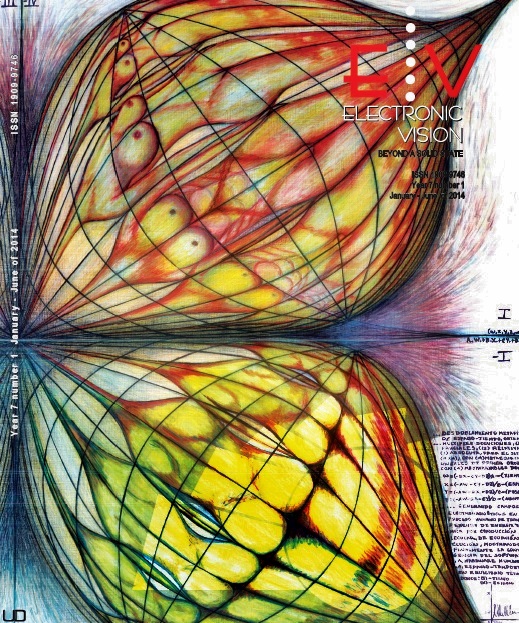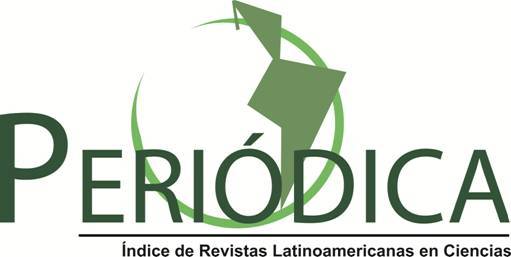DOI:
https://doi.org/10.14483/22484728.7854Published:
2014-12-03Issue:
Vol. 8 No. 1 (2014)Section:
EditorialEditorial
Keywords:
Editorial (es).Downloads
How to Cite
APA
ACM
ACS
ABNT
Chicago
Harvard
IEEE
MLA
Turabian
Vancouver
Download Citation
EDITORIAL
We believe, or we are forced to accept, that a critical spirit is necessary to do research; however, we do everything to regulate and formalize research even at the expense of intuition and creativity
José Fernando Isaza (The ten dogmas of science in Colombia, 2014)
From many years of experience and observation, it goes without saying that countries with solid national schemes for promoting science, technology and innovation are expected to boost their own development in the short and medium term. Of course, in order to make such development sustainable in the long term, it is absolutely necessary to provide stability for these schemes and for the natural evolution of new policies in terms of the scientific and technological development of a nation.
In Colombian, Colciencias is the official governmental organization in charge of running all national schemes for promoting and coordinating all activities of scientific nature throughout the country (also referred to as the National System of Science Technology and Innovation – SNCTI). Since this national organization takes sole responsibility for all projects and initiatives in terms of SNCTI in Colombia, it seems just fair to expect that the national government provide such an important organization with stability, so that the nation’s development in terms of science and technology matches its current and future economic growth. However, stability does not seem to be one distinguishing feature in the recent history of Colciencias, particularly when the direction of this organization has been endowed to six different people within a single presidential period (a 4-year period).
In this context, the effects of instability may have an impact on the scientific policies of the country as well as on the success of various ongoing courses of action. For example, a highly unstable political situation may lead to unexpected changes in budget allocations, threatening the continuity of successful programs such as the Ph.D. scholarships program, which requires four years only to achieve graduation of its participants, not to mention that relevant figures and actual results begin to be visible after a decade.
Another consequence of the already mentioned unstable management is the reduced involvement of scientific minds in decision making. Since the existence of important institutions like Colciencias is supported by the politicians who promoted the legal acts and laws that guided its creation, lack of scientific continuity in positions of power has allowed more politicians (than scientists) to get involved in the decisions that bring technologically-based, sustainable development to underdeveloped regions in Colombia. At present, the Colombian government is receiving vast amounts of money from royalties (oil and mining), and 10% of the revenue is to be invested in SNCTI activities. Unfortunately, such a good initiative appears to be eclipsed by the political (not scientific) formulation of unfeasible projects that negatively affect the development of the regions that own the natural resources being exploited; ultimately failing to meet the actual needs of these regions.
In the medium and long term, it is also worth mentioning that national administrative efforts might be wasted in a country with a weak scientific apparatus. The president of the nation himself has led a process of incorporating Colombia into organizations such as OCDE, in an attempt to encourage international trust and improve the opportunities of Colombia in international markets. Nevertheless, the requirements to enter such prestigious international communities entail having strong educational systems as well as solid schemes for scientific and technological development.
Moreover, a reckless disregard for the importance of making well-advised, timely decisions in terms of SNCTI is prone to yield unrealistic indices of a country’s scientific development. Specifically, items such as the amount of indexed publications, the number and type of patents, the utility models, the books and the projects that take place in Colombia may not represent contributions to satisfying the actual needs of the country’s inhabitants. Far from being a deliberate act of negligence, this apparent inattention and lack of rigor is caused by the current weak administrative structure of the only governmental scientific organization of the country, namely Colciencias is merely an administrative department and it requires a lot more autonomy and staff to properly cope with all its duties.
In light of the arguments presented above, it seems reasonable to claim that the Colombian academic and scientific community must play a new role in the decisions that shape the future of SNCTI. As a single example of the sort of new roles, it is suggested that academia and scientists should be given the right to choose their own leaders with no interference or obstacles of political or social nature, nor the influence of any professional association or corporate representatives whatsoever; in other words, elections for positions of power within a scientific community should be driven and ruled exclusively by the scientific interests of the nation. This simple right to chose supports the logical principle whereby the most prestigious science academies and national science councils of all time have been historically commanded by their most outstanding doers. This might well be the time for Colombia to follow such simple yet successful model.
Issue 13th of Electronic Vision: Beyond a Solid State presents a range of research products obtained from the work of academic communities in fields like electronics, control and telecommunications. The pieces of work published herein involve members of various universities (Universidad Distrital Francisco José de Caldas as well as other national and international universities).
The scientific-technological articles presented in the section called A Research Vision provide useful insights in topics such as: simulation models that recreate bone repair stages based on cellular automaton; models for proper ventilation of mines; computational approaches to find properties of piezo-composites with particular geometric distributions; the use of solid state reaction methods for the characterization of samples in solid state physics; exact solution to the dynamics that govern non-linear electrical circuits; mathematical models that allow simulation of the response of the immune system to HIV; an also a new approaches to finding coefficients in Cauchy-Euler differential equations.
The section called A Case-Study Vision includes relevant applications in topics such as: biomedical instrumentation using micro-controllers; web-platforms for highschool student behavior tracking; evaluations of sound attributes through the use of codecs; intelligent tree trimming schemes for protecting power lines in power distribution systems; location systems based on control principles that apply specific filters; the development of interpreters to be used in the control industry; extended analysis about the consequences of implementing particular levels of service; and even assisting tools to aid sight impaired patients to tell the difference between wider color ranges.
The articles contained in the section called A Current Vision provide readers with recent information on the way waste water treatment plants should work; also on the concepts involved in implementing safety instrumented systems; and finally on current telecommunication issues derived from the existence of the so called new generation networks.
On the other hand, three articles are presented in the section called A Context Vision: about the conservation of particular tree species, it represents a comprehensive study of the properties of alternative types of wood that might be used to stop the devastating effects of indiscriminate logging; also on the peace process in Colombia from a simulation with artificial neural networks; and finally on the rationality and no rationality in the use of medical technology
The bibliographical vision, this time about the William Ospina´s book: Pa que se acabe la vaina; and the section called A Historical Vision about life Sonya Kovalevskaya.
Let this be an opportunity to reaffirm the academic excellence of the community that preserves and fosters the present editorial project, namely authors, peer reviewers, scientific committees, editorial committees, readers, active members and the operative staff that make the publication of this journal possible. This wide range of participants has successfully grown in time to incorporate international members from other Latin American countries and also from Europe. All these people permanently renew their cultural and unavoidable commitment to gaining higher academic and social visibility through the publication of outstanding work, yet always to be improved and adjusted according to the rigor of peer reviewing.
Harold Vacca González
Editor


1.png)




.jpg)





